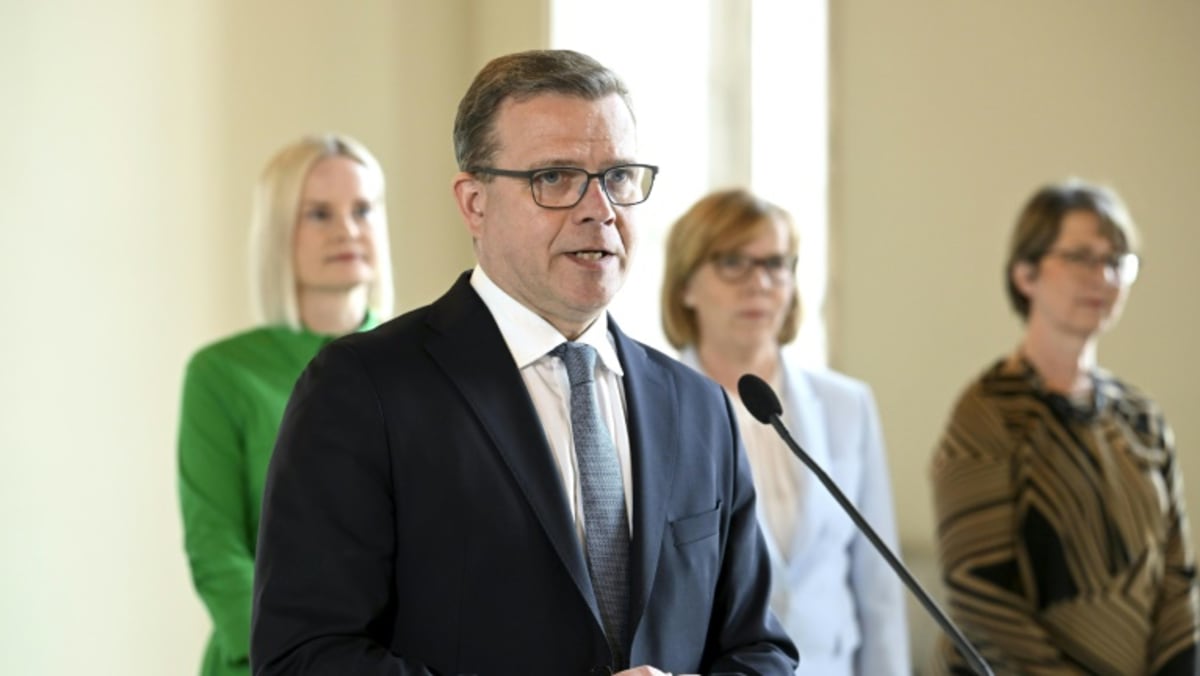Finland’s PM-designate to seek alliance with far-right
HELSINKI: Conservative politician Petteri Orpo, who won Finland’s April general election, said on Thursday (Apr 27) he plans to form a coalition government that includes the far-right runner-up Finns Party.
The Finns inclusion in negotiations raises the possibility the anti-immigration party, which took just over 20 per cent of the vote, could for the second time join a ruling coalition.
Formal talks open on May 2 between Orpo’s National Coalition Party, the Finns Party, the Swedish People’s Party and the Christian Democrats, Orpo told reporters.
The negotiations, which typically take around a month, are expected to be difficult, as the Finns Party’s hard line on immigration and scepticism towards Finland’s climate targets has caused friction among the right-wing parties.
If Orpo succeeds in drafting a government programme supported by all four parties, the coalition would secure a majority of 108 seats out of 200 in parliament.
In March, Swedish People’s Party leader Anna-Maja Henriksson, said her party would not participate in a government that pursues the policies of the Finns Party, emphasising the importance of attracting labour migrants to Finland.
While other political parties view immigration as a solution to Finland’s ageing populace, the Finns Party has taken a more stringent stance.
It attributes increasing juvenile crime to migrants and has actively campaigned against immigration.
Finns Party leader Riikka Purra said Thursday that immigration was “a threat to both security and the economy,” but the party was open to “negotiation”.
“There are certainly things we can agree on in the area of labour immigration,” she told reporters.
IMMIGRATION IN FOCUS
The Finns Party served in a centre-right government with the National Coalition from 2015 to 2017 but that collaboration ended when the Finns Party split into two groups – a moderate and a hard-line faction.
Currently, only the hard-liners remain in parliament, having become the second-largest party in the 2019 election.
The Finns Party’s objectives include eventually exiting the EU and postponing Finland’s aim of achieving carbon neutrality by 2035.
Political scientist Mikko Majander from the Magma thinktank told AFP that “a heated debate is expected” in the negotiations to hammer out a government programme.
“Purra must have a clear influence on immigration policy. In exchange for that, they can compromise on other issues,” he said.
However, he noted that “it is not set in stone that a government can be formed” with these four parties.
Despite their differences, Orpo said he believed the parties could reach an agreement.
“There are of course differences between the parties. But following (preliminary) negotiations we collectively feel that the issues can be resolved,” he said.
Orpo’s alternative would have been cooperation with outgoing Prime Minister Sanna Marin’s Social Democrats.
A “blue-red” government with the Social Democrats and the National Coalition – not uncommon in Finland – would have also been easier for smaller parties to join.
But Orpo said the former government partners’ differences on economic policy were “so great that the parties now selected are much closer to each other.”
Analysts also noted that a blue-red government excluding the Finns could have raised democracy issues, given their strong election showing.
“UNPREDICTABLE”
Orpo’s election campaign focused primarily on calls for budget austerity, and he now appears willing to compromise in other areas to secure support for his €6 billion (US$6.5 billion) savings plan.
Marin had slammed his plan as “taking from the poor to give to the rich”.
While the Social Democrats would have been a “tried and tested” partner, the Finns Party could prove “unpredictable”, Majander said.
He noted that its voter base could have a hard time accepting budget austerity.
Majander also predicted possible difficulties on EU affairs with the Finns Party in the coalition.
“Especially in relation to the common debt. Finland in general does not want it, but the Finns have a harder line than the pro-EU National Coalition,” he told AFP.
In the April elections, the incumbent Social Democrats fell to third place with 43 seats, behind the National Coalition with 48 seats and the far-right with 46.
For all the latest world News Click Here

